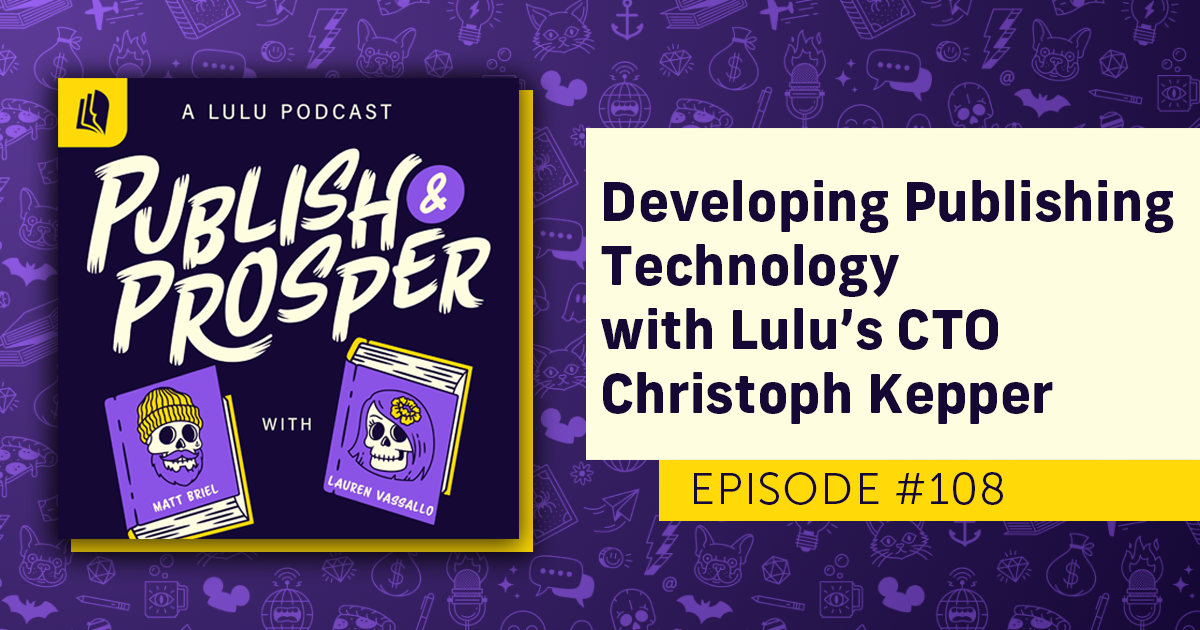Turning Your Writing Hobby into a Content Business
For nearly two decades, I’ve been writing in my spare time. Usually, it's the first thing I do in the morning.
I write essays and stories, and sometimes I just type out my thoughts.
And yes, I get paid to write the content you’re reading right now. But I’m not talking about that. I’m talking about writing for writing’s sake.
I’m a hobbyist writer, and I like that.
So, I want to be completely clear that I’m not saying everyone who enjoys writing (or any hobby) should always be looking for ways to turn that hobby into a business. That’s some weird hustle culture mentality that I do not support.
This post is for that subset of hobbyist writers who also would like to make money from their writing.
People Love Content
I’m not even going to bother finding sources to prove it. We love content. Blogs, posts, videos, podcasts; you name it, and we’ll consume it.
If you create and share content, you do so because you care about others seeing and enjoying that content. Or learning something from it. The purpose is rarely to make money.
But that doesn’t mean you can’t use the content you love to create to build a sustainable business for yourself. If that’s you, this guide is for you.
Before You Monetize Your Content
There are two important things you need to do before you can go down the path of monetizing your content:
- Understand the business side
- Define your content ‘tilt’
Learning the Business Side
I love to create content. Mostly written, but I’ve dabbled in some other forms. What I haven’t done is go through the work to monetize that writing. I’ve never dipped my toes into the business of writing (personally).
But to build your own content business, you do need to understand the business side of it. That means developing sound financial tracking, figuring out insurance, and having a firm grasp on how taxes will impact your revenue.
But first, you need to create a business plan. This is an opportunity for you to think about your product (the book you’re writing), the market/audience you will sell your product to, and who you might be competing against. You’ll also look at resources—from financial to physical—that will be necessary to start and maintain your business.
You will have expenses, like hosting a website or using an ecommerce platform, that you’ll need to consider. It’s smart to begin by doing some research into the ins and outs of actually running a business before you start selling anything. Then you’ll need to develop a solid budget for your content business.
What is a Content Tilt?
The idea of a content ‘tilt’ comes from well-known entrepreneur Joe Pulizzi. He defines it as “...what makes you so different that your audience notices you and rewards you with its attention.” For example, you might be a nature photographer, and your tilt is that you capture funny moments (like the photos from the Comedy Wildlife site). Or you might be a blogger who writes about gardening, and your content tilt is that you write each post from the perspective of a different plant.
Your tilt is what will set you apart. Think hard on this and do some research in your niche to figure out how you can turn your existing content into a product with a tilt.

Your Free Lulu Account
Create a Lulu Account today to print and publish your book for readers all around the world
Turning Your Content into a Product
From here on out, we’re going to focus on using books as the product you’re creating from the written content you’ve already shared with the world. That’s my area of expertise, but most of this advice can apply to other kinds of content and products.
Additional Content Ideas
Books are one of the best ways to monetize your writing. That will be what I want to focus on. But first, here are four additional ways to make money from your book or the expertise and skills you’ve developed as a writer.
- Freelance Writing - Offer your writing skills for blogs, magazines, businesses, or websites. Freelancers are in high demand for drafting SEO-optimized articles, white papers, social media content, and email campaigns.
- Monetized Blog - Turn your expertise into a blog, then monetize that with ads, affiliate marketing, or sponsorships.
- Online Courses or Workshops - Turn your writing skills into an online course for new writers or content creators.
- Subscription Models - Create exclusive content for paying subscribers using a platform like Substack or Ghost. This option works best if you already have an audience following your content (like blog posts or email newsletters).

Create Your Book
Use Lulu's free templates to easily create and publish your book today.
Back to Publishing Your Book
Okay, so first off, you’ve got to connect the content you’ve already got—like short stories or blogs or even novels—to a product that fits it. Defining that product comes in three parts:
- The Content You Have - Take an accounting of all that you’ve written. Are they fictional stories or essays on current events? Determine a few categories (like fiction, essays, and poetry) to sort your content. Then, look hard at each category to find topics or trends. This is the first step in defining the theme of your book (and your tilt).
- Define Your Niche and Audience - If you blog or share your content on social media, you probably already have a bit of a following. If you don’t, you need to start building an audience now. As you find followers, you should start to see trends here. This is your niche—the specific content you love to create that other people love to consume. That might be broad, like Romance, so look for ways to narrow it. Something like Historical Romance with Magic might be specific enough for you to understand what the audience you’re marketing to wants to read.
- Apply Your Tilt - Finally, you need to find a way to make your books stand out. You should already be thinking about this as you work on finding themes in your content and building an audience. Now, apply that tilt to make your work truly unique. Maybe your Historical Romance with Magic books are different from others in that niche because your characters are all earthworms instead of people.
Putting Your Writing Together to Make a Manuscript
Obviously, if you’ve been writing a novel, you’re already working on a manuscript. If that’s you, the key thing is to finish writing the book. Then, it’s editing and design work while you put together a business and marketing plan.
If you create other kinds of content, like blog posts, poetry, or short stories, you need to rely on those categories you created while sorting your content. In theory, each category could be a book. You’ll need to select one and further evaluate your content.
Turning a blog into a book is the usual path for nonfiction writers and essayists. You’ll need to take your posts and align them with some connecting copy. This can be a good use case for AI assistance.
Take the blog posts you want to use for your book, have your preferred AI read them, and then ask it to create an outline for a book using those posts as a base. You’ll need to refine the prompt to your specific content, and you’ll probably want to dig into some of what you’re missing to get the best suggestions.
But today’s AIs are good at these tasks. You won’t want to use AI to write any of the content, but it’s terrific at helping you figure out what’s missing and organize the work you still need to do.
Publishing Your Book
Once all that content is put together, you’ll need to design your book’s interior and cover files for printing. You’ll probably want to create an ebook and audiobook, too, so you can offer your readers your book in whatever form they prefer.
With Lulu, we make it easy to publish and print books on demand. Using our Pricing Calculator and templates, you prepare your interior pages, publish your book, and then you can sell on the Lulu Bookstore, through your site with Lulu Direct, and on Amazon (and other retailers) through our distribution services.
The publishing process might be the most daunting part of monetizing your content, but it’s not nearly as challenging as it once was. Clear templates, simple online platforms, and ample educational content have made the process faster and simpler than ever before.
Marketing Your (New) Content Business
The last step is marketing. And if anything, it’s the hardest and most important. It’s hard because you need to put in a lot of work to build an audience. That means spending time on social media, attending events, setting up and sending regular emails, and looking for other writers and creators to partner with.
If you’re just starting out and you don’t have a big audience, you need to build one. That means getting involved in online communities, posting content on social media, and generally spreading the word about your work.
Remember that promoting yourself (and your book) is tough at first, but as you build an audience, you’ll build momentum for the next book.
Getting Your Content Business Started
Okay, there’s a lot that goes into turning your passion into your business. And I acknowledge that it’s not for everyone. But if you’re ready to take what you write and turn it into something you sell, this outline is a solid guide to get you started.
Before you go, I’ve got three tips to help make starting your content business feel a little less overwhelming.
- Build an audience by finding space online where people who would likely want to read your book gather. These are avid readers (and probably some writers) whom you’ll promote your book to once it’s time to launch.
- Join relevant communities (online and in person) to connect with peers—fellow writers are working to monetize their content just like you. Engage with readers and peers to discover new opportunities (like swapping content or beta readers).
- Create a schedule for publishing on social media and sending out emails. Remember, in the beginning, consistency can be more important than quality. You can't improve on something that doesn't exist. So start sharing content with whatever audience you have and taking note of what works (and what doesn’t).
There’s no way to touch on everything that goes into turning your writing hobby into a full-fledged content business, but this guide is a starting point to help you feel less overwhelmed. Now is the time to start planning and budgeting so your writing business is a huge success!




